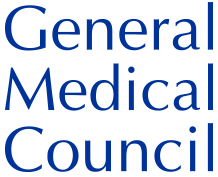
On 9 November 2020 the General Medical Council (GMC) updated their guidance on decision making and consent. This guidance was released during the peak of the second wave of the Coronavirus pandemic. Clinicians need to make sure this vital guidance has not been lost amid a busy wave of hospital admissions.
As elective surgery picks up again and the NHS faces a backlog of procedures, health professionals need to make sure the consent process is correctly followed and not rushed. [1]
The crucial change in this edition of the guidance is a greater focus on consent as a ‘meaningful dialogue‘ between doctor and patient. The clinician must provide information relevant to the patient, recognising their specific priorities as an individual. The new guidance focuses heavily on what constitutes a meaningful dialogue, and provides support for health professionals in this area.
The new GMC guidance states:
Consent is a fundamental legal and ethical principle. All patients have the right to be involved in decisions about their treatment and care and to make informed decisions if they can. The exchange of information between doctor and patient is essential to good decision making.
What constitutes a ‘meaningful dialogue’?

An open, meaningful dialogue with patients is crucial to good decision making. This will help the patient understand their role in the process and their right to choose what treatment they want to have, if any. This step is vital, as it is here that the health professional discovers what is important to their patient so they can identify the information they will need to make an informed decision.
Working in partnership with patients and answering their questions honestly and accurately, will ensure they are an active participant in their care.
The need for clear, accurate and up-to-date information
Information given to patients should be based on the best available evidence. Clinicians must make sure they are providing their patients with the benefits, risks (including side effects or complications), possibility of failure and the option to do nothing at all.
Clinicians aren’t expected to share every possible complication of the proposed procedure with their patient. Tailored discussions, guided by what matters to the individual patient, will ensure the appropriate level of information is provided and the necessary risks are discussed.
Keeping records up to date
Patient medical records should be kept up to date with key information. Keeping a record of the discussions leading to a decision from the patient is crucial to their future care and will help the clinician explain and justify their decisions and actions.
Clinicians should also accommodate the wishes of the patient if they would like to record the discussion. This will help put the patient at ease, while providing protection for clinicians against litigation claims.
Ensuring the patient understands the information
Information should be shared in a way the patient can access and understand. The 2020 GMC Guidance states health professionals must do everything they can to make sure the patient has understood the information. Advice from the previous edition of the guidance was that the health professional should check that the patient has understood the information they’ve been given. Greater emphasis is now being placed on shared decision making between doctor and patient.
Some patients may need support to understand and retain the information they are being given. Health professionals need to ensure adjustments are made so patients with additional needs have enough time and support to understand the information, thus supporting an informed decision.
What would a reasonable patient consider important?

Since the landmark Supreme Court ruling in Montgomery v Lanarkshire Health Board in 2015, greater emphasis has been placed on patient-centred care. This means treating each patient as an individual and taking into account factors including the patient’s job, hobbies and family situation (for example, if they are a parent or carer). These factors will influence the importance a patient will attach to different outcomes.
Clinicians need to ensure they don’t rely on their own assumptions about what factors they feel the patient would consider significant. Instead, there must be an honest dialogue with the patient to find outwhat matters to each patient by listening to them and encouraging them to ask questions.
While most clinicians have been implementing this method for some time, this explicit advice is new.
Concluding thoughts
A thorough and consistent consent process is essential. A two-way conversation between doctor and patient helps keep patients informed and involved in their healthcare journey, while a clearly documented approach provides protection for health professionals and organisations against consent-related litigation claims.
While the world may have changed significantly in the last year or so, keeping patients properly informed and fully involving them in decisions about their care is as important now as it has ever been.
Read the latest GMC guidance on decision making and consent here.
1. Carr, et al., (2021). ‘Growing backlog of planned surgery due to covid-19’, BMJ